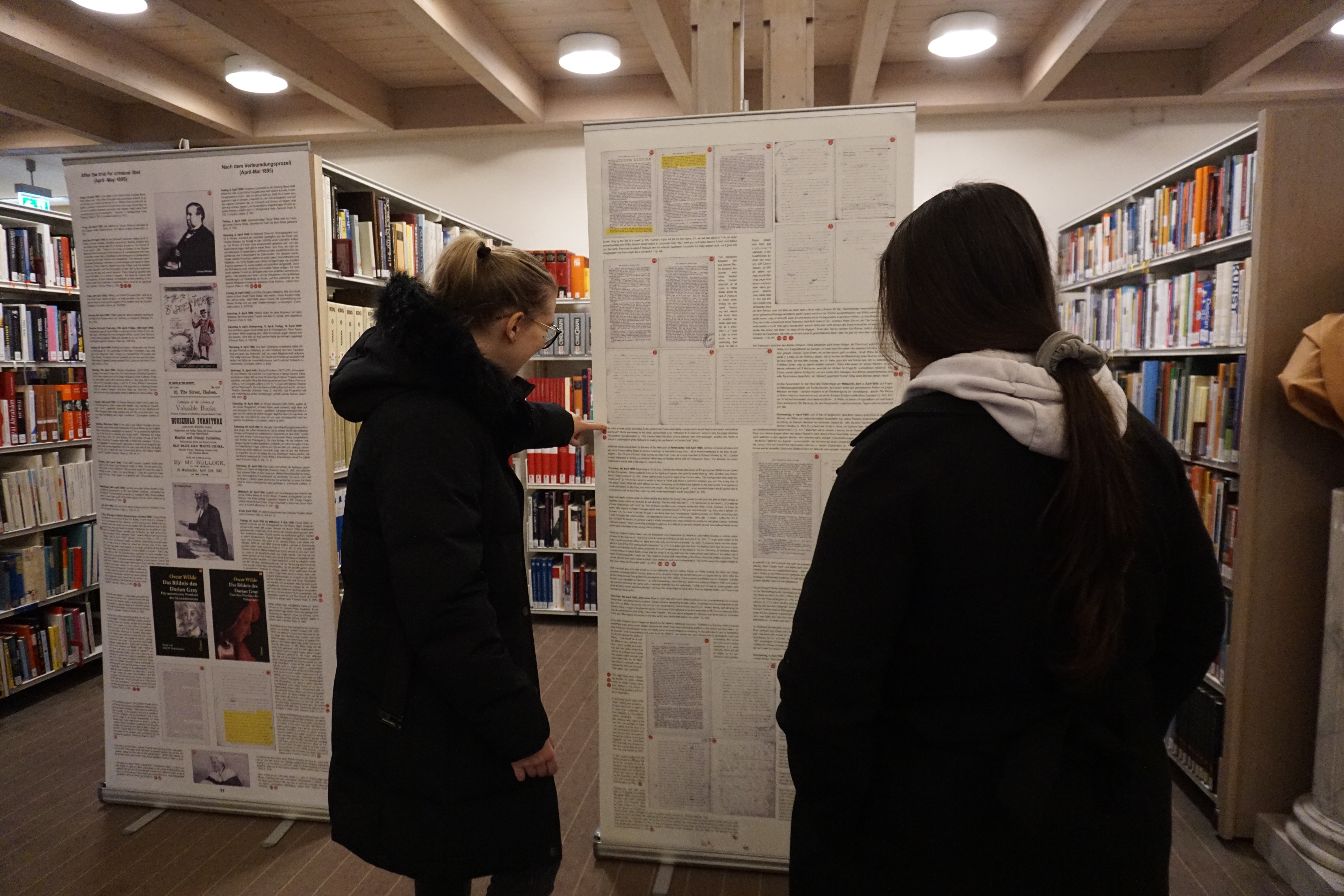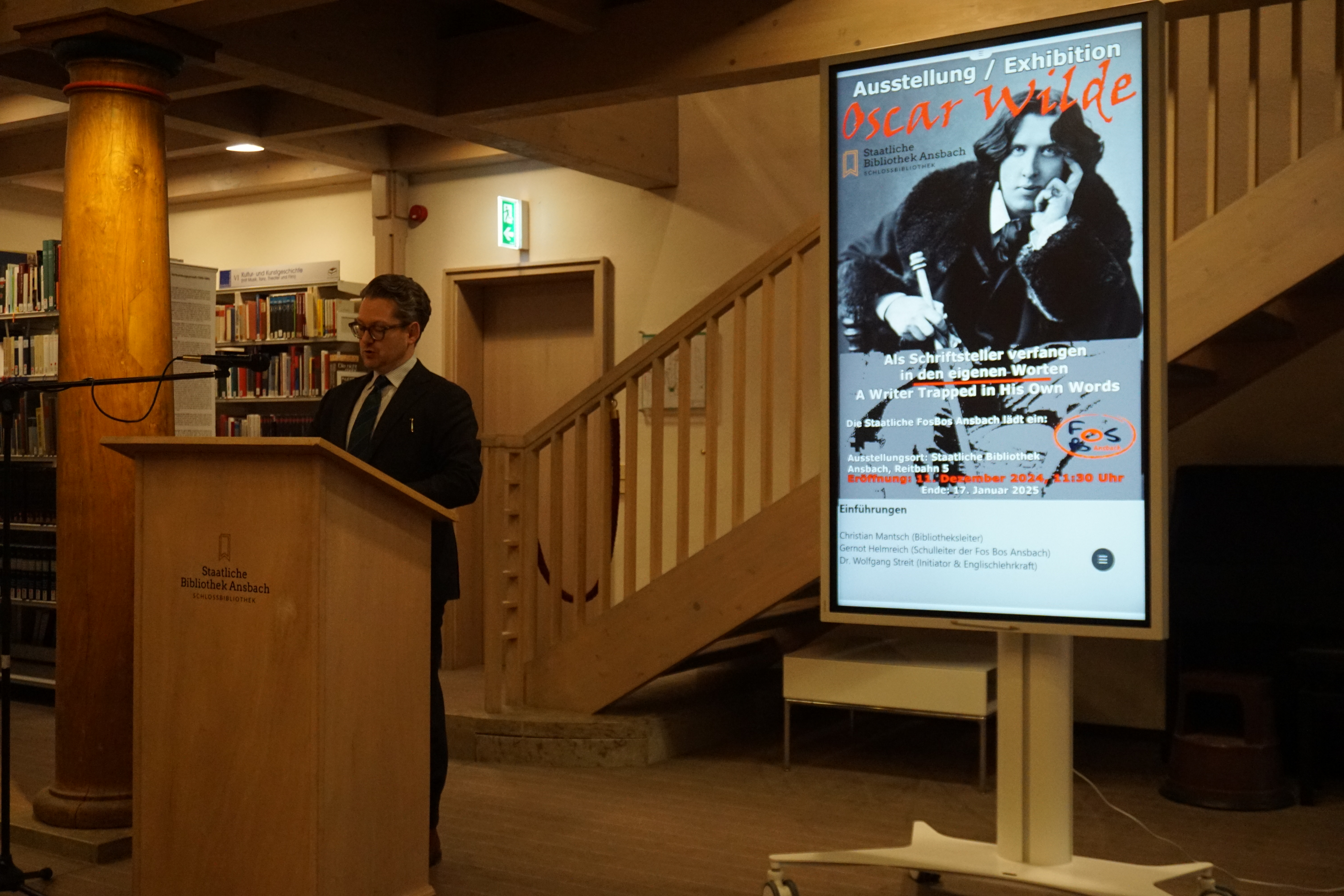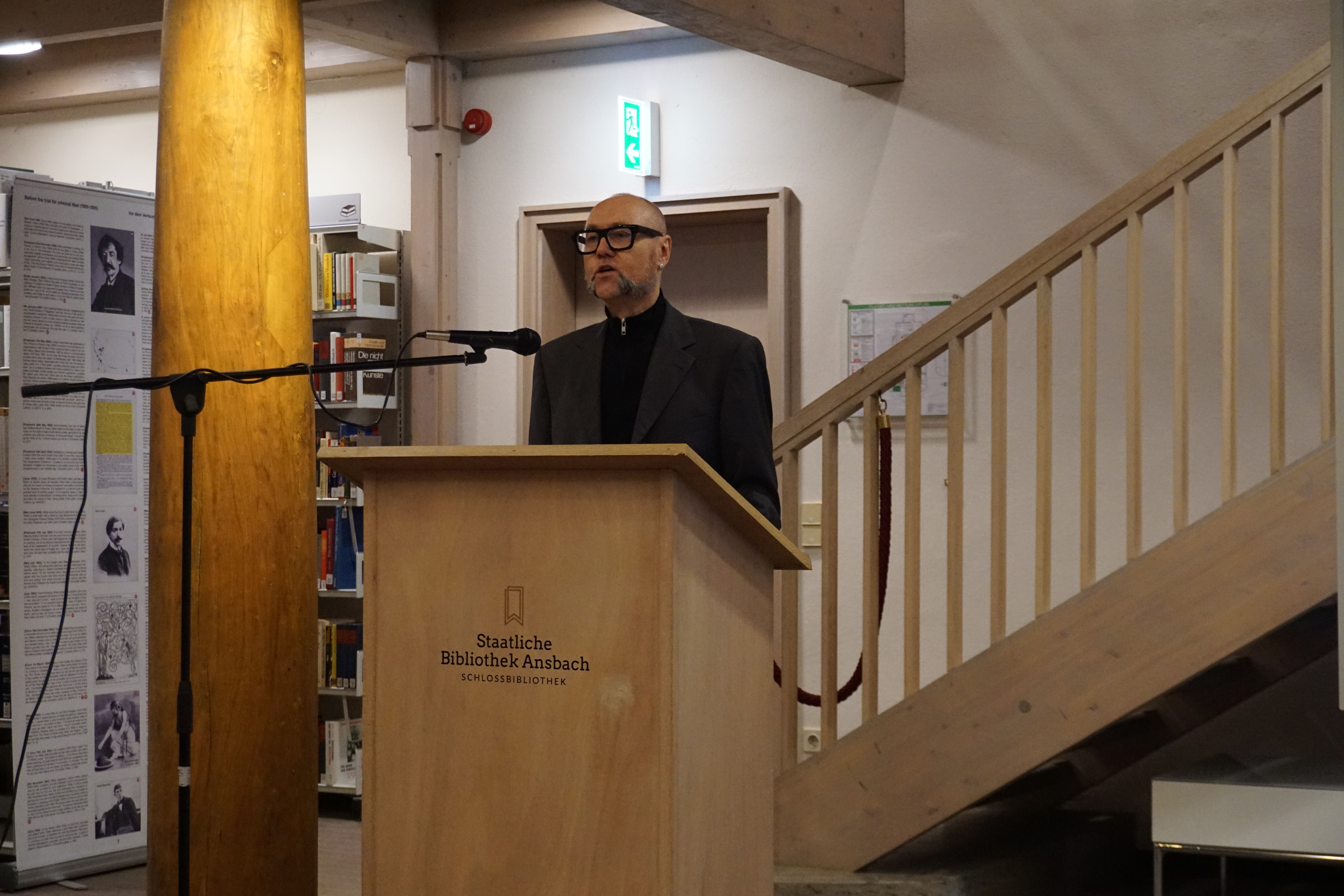Oscar Wilde: A Life between Genius and Society –
Commemorating His 170th Birthday

On the occasion of the 170th anniversary of Oscar Wilde's birth, a special exhibition was opened in the Federal Library in the heart of Ansbach, dedicated to exploring the life and works of this extraordinary writer – a mobile exposition curated by Dr Jörg Rademacher. The event aims to bring together numerous literature enthusiasts, students, and community members eager to learn more about Wilde – one of the sharpest and most controversial thinkers of the Victorian era.
Following the warm welcome of the head of the library, Mr Mantsch, also our school principal, Mr Helmreich, addressed all visiting students and guests. He particularly emphasized the importance of cultural education and the relevance of Wilde today.
Afterwards, the initiator of the exhibition, Dr Streit, took the stage for a deeper exploration of Wilde's legacy. He highlighted Oscar Wilde's remarkable versatility, emphasizing his place in literary history: Wilde was not only a brilliant playwright but also a keen observer of human nature and an unflinching critic of the societal norms of his time.
A central focus of Streit’s speech was Wilde's most famous work, „The Picture of Dorian Gray“. He outlined the novel’s sharp critique of moral hypocrisy, its deep philosophical examination of the human condition, and its author’s independent, morally tinged aestheticism. Wilde, he argued, used “Dorian Gray” also to investigate the dangerous seduction of external beauty and the emptiness of a merely sensuous life – a theme that remains as relevant today as it was in the 19th century.
Afterwards, all attending students of FOS-classes 13W and 13SIW worked hard to assess in detail the 12 bilingual banners of the exhibition and appreciate their fine historical illustrations. In particular, they showed us students a particularly painful and personal chapter of Wilde's life – his trial and imprisonment. The exhibition reveals the legal and social consequences of Wilde's homosexuality. We got to know Wilde as a man ahead of his time, challenging the normative pressures of Victorian society, especially regarding his homoerotic inclinations: He openly had a romantic relationship with Lord Alfred Douglas, a younger man from the noble British upper class, at a time when same-sex relationships were illegal and punishable by law.
The exhibition explains how Wilde's life ultimately culminated in a tragic series of events leading to his arrest. In 1895, he was charged with "gross indecency" – an accusation rooted more in societal prejudice than in any criminal act accepted today. During a highly publicized trial, Wilde was convicted and sentenced to two years of hard labor.
Scrutinized over a distance of 130 years, Wilde's trial was more than just a legal battle. It was a symbol of the destructive effects of institutional intolerance. He was punished not only for his actions but for his refusal to hide his true self. Therefore, he became a martyr for individuality and freedom of expression.
All in all, this exhibition serves as a reminder that Oscar Wilde was much more than an eccentric writer. He was a courageous thinker prepared to speak truth to power in an era of repression, and to challenge the conventions of his time. Wilde’s legacy continues to inspire discussions about art, identity, and the price of authenticity, also in our today’s world, which is too often governed by societal expectations.
Linh Dan Hoang Ngoc and Hannah Weiss

Welcome by the Director of the Ansbach Federal Library, Mr Mantsch

Address of the headmaster of our Staatliche FosBos Ansbach, Mr Helmreich

Dr Streit introducing the exhibition